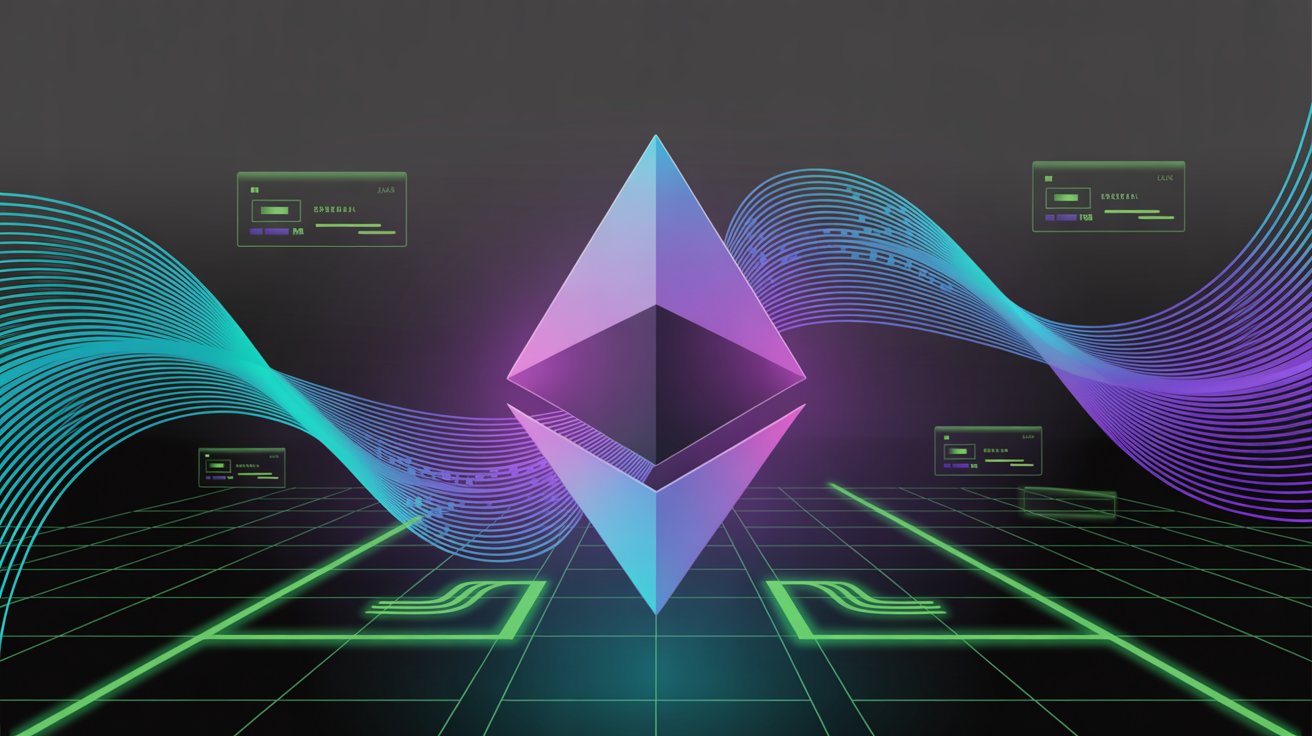5 Cheapest Web Hosting for WordPress in 2026
27 July 2023

Did you know that the Ethereum Dencun Upgrade has increased the efficiency of the Ethereum ecosystem? Thanks to this upgrade on the Ethereum blockchain, transaction fees have become lower for users and developers on the network.
This Ethereum improvement guide will discuss the key features and impact of the dencun upgrade on Ethereum smart contracts, data storage, and transaction throughput. We will look at the future of Ethereum for developers and how it helps to improve scalability and efficiency for the Ethereum community.
The Ethereum Dencun Upgrade is a term given for the merge between the Ethereum consensus mechanism (Deneb) and the execution layer (Cancun). The goal of this combination is to improve the main Ethereum blockchain, reduce transaction fees, and make the network more scalable, thus tackling the limitations that have been affecting the Ethereum network for a long time.
Ethereum's dencun upgrade initiated an innovative concept called Proto-danksharding (EIP-4844), which is the building block for full danksharding, which is a major scalability solution that can lead to mass adoption.
Proto-danksharding is the main feature of the Cancun upgrade. It introduces temporary data containers called "blobs" that allow rollups to post cheaper data to Ethereum, which will lead to lower gas fees for the L2 network. This change doesn’t fully implement sharding but acts as a crucial step toward it.
With the help of blobs, layer-2 networks like Optimism, Arbitrum, and Base can now operate more efficiently. This leads to a significant reduction in gas fees for end users, especially for DeFi and NFT transactions.
The upgrade improves data availability for rollups, making it easier for decentralized applications (dApps) to verify transactions without relying heavily on external data sources.
By improving how data is stored and accessed, the Ethereum Dencun Upgrade boosts overall network throughput, reducing congestion and enhancing the user experience.
By enabling blobs and reducing the cost of posting data, Ethereum can now handle more transactions through its layer-2 networks, significantly boosting scalability.
Dapps and rollups can process data more affordably, lowering gas fees for users across the ecosystem.
Layer-2 solutions now have an optimized path for transaction batching and execution, offering faster finality.
Developers benefit from better resource management, more predictable fees, and easier deployment of high-performance dApps.
The introduction of proto-danksharding (EIP-4844) allows Layer-2 rollups to post data more efficiently to Ethereum using "blobs" (temporary data chunks). This significantly reduces transaction costs on Layer-2 solutions like:
Result: End users pay much lower gas fees for swaps, mints, and other on-chain activities.
By optimizing how data is handled, Ethereum can now process more transactions per second (TPS) through its rollup ecosystem. While it’s not full sharding yet, proto-danksharding lays the groundwork.
Result: Ethereum is more capable of handling mass adoption without congestion or slowdowns.
Blobs reduce the need to store all data on-chain, enabling faster processing and quicker finality on L2 transactions, especially for applications like DeFi, gaming, and NFTs.
Result: Users experience faster confirmation times.
Developers can build dApps with more predictable gas fees, improved network responsiveness, and better scalability without relying entirely on off-chain infrastructure.
Result: Easier and cheaper to build scalable apps on Ethereum.
Rollups need to post data back to Ethereum for verification. Blobs offer cheaper, temporary storage, improving data availability and enabling secure, decentralized computation.
Result: More reliable rollup operations and reduced need for data availability committees.
Dencun is a crucial step toward full sharding, Ethereum’s long-term scalability roadmap. It bridges the gap between Ethereum today and Ethereum 2.0’s ultimate vision.
Result: Ethereum is positioned for long-term scalability and innovation.
To help you dive deeper into the Dencun Upgrade, here are some insightful YouTube videos:
1. Ethereum Dencun Explained: The Next Big Upgrade – Finematics
2. EIP-4844 & Proto-Danksharding: Ethereum’s Path to Scalability – The Defiant
3. How Dencun Will Transform Ethereum Gas Fees – Bankless
4. Cancun-Deneb Explained Simply – EatTheBlocks
The Ethereum Dencun Upgrade marks a transformative moment in the network’s evolution. By introducing proto-danksharding and data blobs, Ethereum has taken a huge leap toward solving scalability challenges, reducing gas fees, and supporting high-throughput applications. Whether you're a developer, investor, or crypto enthusiast, understanding this upgrade is essential for grasping Ethereum’s future direction.
With cheaper transactions, faster processing, and improved rollup support, Ethereum is better positioned than ever to support mass adoption and innovation in the blockchain space.
You can also learn about the history of cryptocurrency to understand how popular coins like Bitcoin and Ethereum started.
The Ethereum Dencun Upgrade is a combined update to Ethereum’s consensus layer (Deneb) and execution layer (Cancun), aimed at improving scalability, reducing gas fees, and enhancing data availability, particularly through the introduction of proto-danksharding (EIP-4844).
EIP-4844 introduces proto-danksharding, which enables rollups to store large data blobs off-chain cheaply and temporarily. This innovation is essential for reducing gas costs and scaling Ethereum to support more users and transactions.
The upgrade significantly reduces Layer-2 gas fees by enabling more efficient data posting via blobs. Users interacting with dApps through rollups like Arbitrum and Optimism will benefit from lower transaction costs.
No. Dencun is a precursor to full sharding, known as proto-danksharding. It sets the foundation for Ethereum’s long-term scalability roadmap but doesn’t implement full sharding yet.
The primary beneficiaries include: